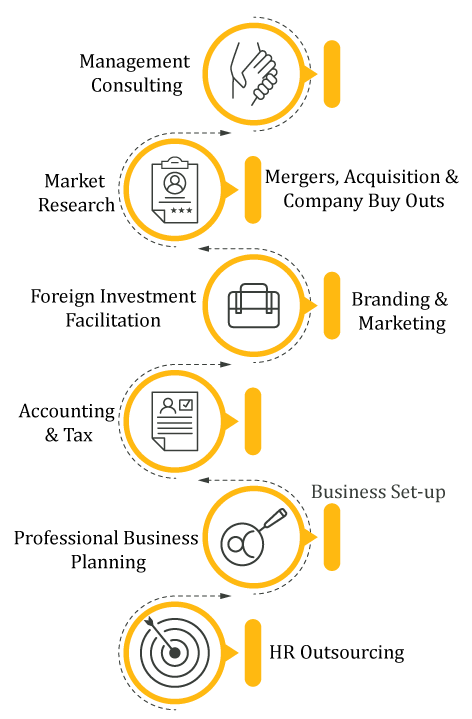Doing Business in Africa
Doing Business in Africa – Africa is termed as the future economic growth engine of the world. Currently 6 out of the 10 World’s fastest–growing economies are in Africa and according to a report done by the Africa Development Bank, the continent’s general economic performance has grown by 3.5 percent in 2018 from a 2.1 percent in the year 2016 and is projected to go up to 4.0 percent in 2019 and stabilize at 4.1 percent in 2020 which is higher than other emerging developing economies as a whole but lower in China and India. 40 percent of the African countries are expected to have grown by at least 5 percent.
The newly operational African Continental Free Trade Agreement (AFCFTA) which was signed in Kigali, Rwanda in the year 2018 and has now 54 member states, is set to boost regional trade and social integration by creating a single continental market for goods and services. The agreement has promoted free movement of business persons and investments through supporting the inception of an African Union passport and to establish a visa-free zone within its member states thus stimulating economic activity and growth of the local economies. It is also anticipated to increase industrial competitiveness by exploring opportunities for continental market access, better reallocation of resources and scale production.
African country economies are successfully attracting global capital with their progressive policies that are aimed at diversifying their economies and growing the middle class. Ethiopia is on track to have the highest GDP growth rate in the world with companies like Tanzania, Kenya, Rwanda and Ghana having growing rates of over 6 percent.
The ease of doing business in Africa is constantly improving to the extent that some of the countries such as Mauritius, Ghana and South Africa to name a few are outperforming countries like China, Brazil and India. Foreign Direct Investment has seen an 11% rise in 2018 from the previous year to an amount of US $46 billion with the highest injection going to the Sub-Saharan and Southern Africa region which is at $32 billion and East Africa, the fastest-growing region holding steady at $9 billion.
Despite these promising trends, there are a plethora of misconceptions that come with doing business in Africa that has left people thinking twice in actually going through with it. Some of the misconceptions are;
- Africa is one country: It is homogeneous
Africa is experiencing the world’s fastest population growth. It is therefore massive in terms of its size and has a population of about 1.2 billion people with Nigeria being the largest country that has 190 million people and a median age of about 20 years.
The differences between the economies in the continent heavily depend on the pace of growth and the level of diversification. The most developed countries in Africa are Seychelles, Mauritius, Algeria, Tunisia and Botswana while the fastest growing economies are Ethiopia, Rwanda, Ghana, Côte d’Ivoire and Senegal.
The continent is not only the second-largest continent in the world in population and size but is also immensely rich in natural resources with every country known for the type of resource that is most dominant like how Nigeria is widely famous for their petroleum production.
- Africa is too volatile and unpredictable
Africa is perceived as a continent that is immersed in poverty, war and crime. Similar to every emerging market, the continent carries its own collection of risks. It is therefore vital for companies to know how to differentiate between perceived and real risks and navigate circumstances and environments.
There are countries more stable than other countries and others are at the forefront of fighting various major vices such as corruption by launching major reforms that will change how things operated.
- Africa is a blue ocean
This defines the African market as a place with less competition or in some cases no competition at all, a market where the peoples‘ demands have not been met and thus still remain untouched. It is also known as the last frontier. This is not the case as once market research has been conducted, one can find various existing businesses that are in operation and the biggest problem becomes how to be a game-changer in the market. We have countries like China focusing on light industries and infrastructures like the Standard Gauge Railway in Kenya, Viettel group from Vietnam having the largest market share in mobile telecommunications in Mozambique, Indomie which is produced and sold by an Indonesian company and the various local companies that are coming up with businesses like the M-kopa solar energy company.
- Africa is an aid destination
The start-up ecosystem in Africa and the European Impact Investment has been growing steadily seeing an increase in market participants from over a dozen venture capital investment firms to incubators/hubs and accelerators.
Africa has seen a drop of development assistance by about 4% while Foreign Direct Investment (FDI) has a rise of 11% making it more of a business and investment destination as opposed to a donation destination.
- African Infrastructures are non-existent
The gap in infrastructure between the developing nations and the developed countries is still there and according to African Development Bank costs the region 2% of growth every year. The gap narrows with each year as there have been various developments in the sector within different countries in the continent.
The infrastructural developments happening in Africa should be viewed as economic opportunities as the countries cannot be able to finance these investments on their own which in the long run acts as a catalyst in the economic development and thus triggers major investments in the region.
The African market has its challenges and risks but there is an entire generation of innovators and trailblazers that are tackling some of the world’s intractable challenges with the help of initiatives, policies and agreements like the AFCTA that are making it easier to do business and create vast opportunities and possibilities.
International businesses can no longer ignore the potential of the region which can be seen with the increase of foreign direct investment and the growth of the economy as a whole.
Are you looking to doing business in Africa? Contact us Today for help on where to start. We are happy to help you Grow Your Business In Africa






